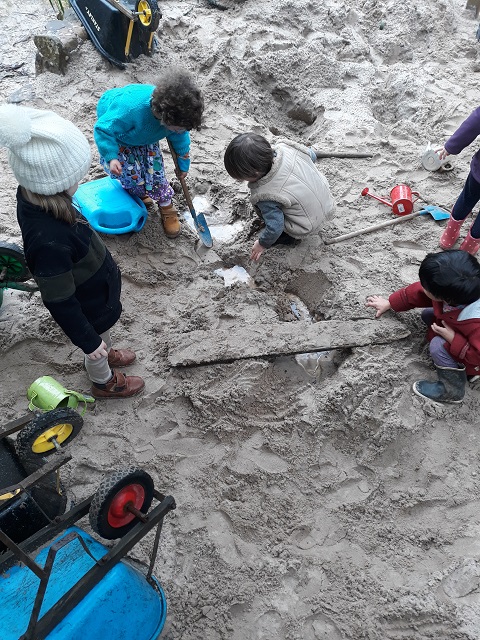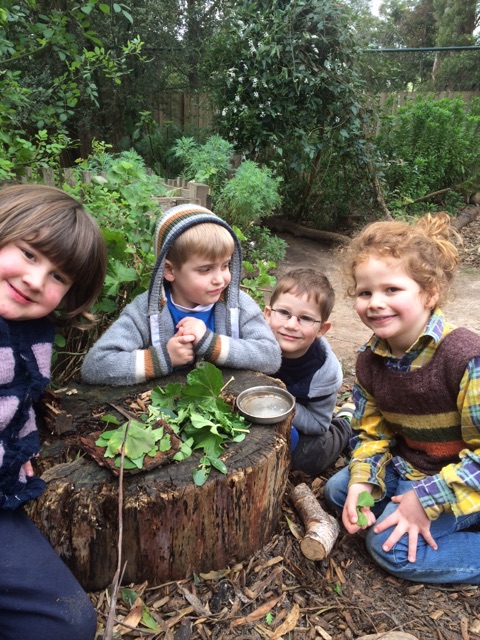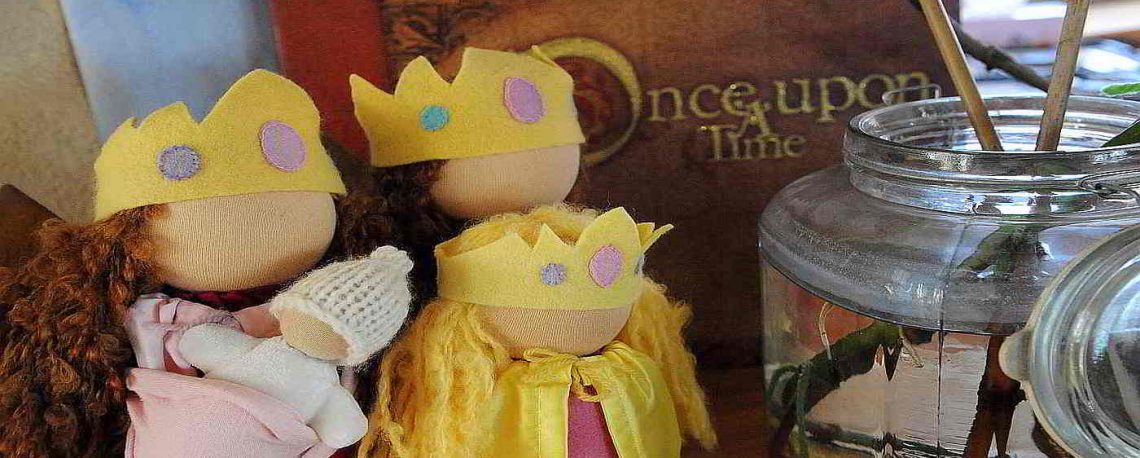Kindergarten
The wisdom of Rudolf Steiner’s teachings has been validated in this modern age. Contrary to popularly held ideas on teaching methodology, it is now many educators’ experience that children do better when intellectual work is postponed. It is therefore through ‘hands-on’ activities during Kindergarten that we sow the seeds for later subject development.
The Kindergarten timetable consists of a rhythmical flow of different activities; artistic, social and physical. These may include painting, drawing, modelling, play-acting, puppetry, singing, stories, poems, games, handcrafts, cooking, gardening and free play.
Use of a variety of natural materials in play areas gives scope for imagination in play, a key concept in Steiner Education for pre-schoolers. Rhythms during the day, during the week and during the year provide a rich source of content for the teacher’s program.

The need for imagination, a sense of truth and a feeling of responsibility – these are the three forces that are the very nerve of Education.
Rudolf Steiner
A Day in the Kindergarten
A rhythmic day provides the stability and security in which creative play can arise. Routines include:
- Free Play
- Morning Circle in which verse, rhyme and song are carefully selected to reflect the season and complement other aspects of the program.
- An artistic or creative activity such as painting, drawing, sewing, woodwork or clay modelling.
- Daily menu of cooked morning tea which children may help to prepare. (Allergies will be catered for).
- A spoken story, finger or puppet play, carefully chosen to nourish the inner life of the child
- Weekly Eurythmy
Prep
The Prep year allows the children to develop new social, artistic and fine motor skills and also allows the class time to strengthen and mature before they continue their journey into Class One and begin their academic work. The focus in Prep is to provide the most appropriate environment for the child’s development and to facilitate opportunities for learning through imitation. Cognitive, social, emotional and physical skills are all afforded equal value and many different competencies are developed.
Children thrive physically and emotionally in the security of a predictable daily, weekly and seasonal rhythm. These strong lively rhythms help to give the children a deep sense of security.


